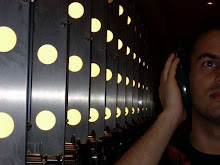I'm going to start by saying that I'm not an expert Japanese speaker. I have been learning it for a year and nowhere close to the level I'd like to be at. That said, I try not to leave any stone unturned. Twitter has been an amazing place to find people who helped me significantly in this insane journey. Two people come to mind, the first is Brett from @Rainbowhill and the second is Harvey who is residing at @Japannewbie. Both have been amazing resources and always there to help if you ask. For that, I will be forever greatful. Check them out!
The most important thing that I've learned from observing myself and others studying Japanese is: we all have different learning styles! One thing that might work for someone will not work for the next person, which is why I decided to write this post. I hope that it will aid you in studying Kanji.
I have used 3 books in studying Kanji. Basic Kanji, Read Japanese Today and Crazy for Kanji. Having read them I have a good idea of the kind of learners they are most likely appropriate for.
A friend of mine swears by "Read Japanese Today" being the book to go for. That's why I got it. It concentrates on breaking down Kanji to simple shapes and gives the reader stories about the origins of these characters to help memorize Kanji. Note: clicking "look inside" on the image will not enable you to do so . :-)

A very similar one is "Crazy for Kanji" in the way that it does take a "non traditional" approach to teach you about the "wonderful world of Kanji". They are both written in English for the most part and try to tap into the creative side of the reader.

Basic Kanji book is for students who prefer the more traditional route. It's mostly in Japanese with little English and will use the excessive repeating of vocabulary, reading and writing exercises to ensure Kanji is engraved in your memory. Many people will not like this approch because it is tedious and can lead to many frustrated sighs. For those learners, I recommend the first two books. I, on the other hand, can't learn from simply reading that "名" came to exist because of people yelling (口 mouth) at night to identify who is out when it's dark (夕 evening). However, the first two books are very useful to me as a refresher or a supplement to the Kanji book.
I hope this post was helpful to you, fellow Japanese learners. It's short simple, to remind you that whatever route you chose, make sure that it's the style you're comfortable with and not the one people tell you will work. We alll process information differently. Finally learning Japanese is an adventure and the results are worth the hard work! 皆さんがばって下さい!
--Tokyofan

